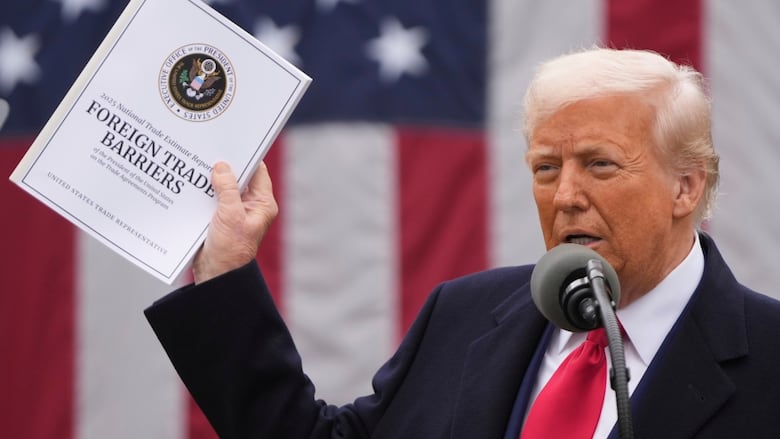Trump’s Trade War: An Unprecedented Triumph or A Hidden Disaster?
At first glance, it appears that former U.S. President, Donald Trump, leads in the trade war, which he ignited after re-assuming the presidential office. His stance on trade has coerced concessions from major trading allies, led to the implementation of substantial tariffs on almost all imports, and has narrowed the trade deficit whilst simultaneously augmenting the federal government’s monthly revenue by tens of billions of dollars. Nevertheless, several substantial obstacles linger. These include the uncertainty of whether trading allies will fulfill their commitments to goods purchases and investments, the possible inflationary pressure resulting from tariffs, the potential brake on demand and growth, and the legality of various spur-of-the-moment levies.
When Trump was inaugurated into office, the effective U.S. tariff rate was approximately 2.5%. The rate has since surged, landing it between 17% and 19% according to varying estimates. Projected estimates from the Atlantic Council suggest that it would gravitate towards 20% – an apex not reached in the past century. Impressively, trading allies have mainly withheld from imposing retaliatory tariffs, thus preventing a potential global economic downturn due to a full-scale trade war.
Trade data from a Tuesday reflected a 16% reduction in the U.S. trade deficit for June, and the trade gap with China shrank to its lowest level in over 21 years. American consumers have proved to be more robust than anticipated, but a few recent data suggest that the tariffs are already exerting effects on jobs, growth, and inflation rate.
Josh Lipsky, leading the economic research at the Atlantic Council, raised an interesting question: ‘What does winning mean?’ In Lipsky’s words, Trump has been successful in imposing tariffs globally and preventing a retaliatory trade war much more effortlessly than was anticipated. However, the broader effect of this on the American economy remains a point of concern.
Michael Strain, the head of economic policy studies at the conservative American Enterprise Institute, voiced his doubt about the victories Trump claims to have won. To Strain, from a geopolitical standpoint, Trump may have secured several concessions from other nations; however, from an economic perspective, he opines that Trump is not triumphing in the trade war.
Among the critics, certain points stood out. They believe that President Trump appears ready to impose economic pain on fellow Americans than other nations are willing to inflict on their citizens, and they perceive this as detrimental. Strain spoke on Trump’s tariffs, tax cuts, deregulation, and energy boosting policies emphasizing that it would take some time for these policies to manifest their consequences.
Under Trump’s administration, there were eight preliminary agreements with the European Union, Britain, Japan, South Korea, Pakistan, Vietnam, Indonesia, and the Philippines. These agreements imposed tariffs on their goods, ranging from 10% to 20%. Although it fell short of the ambitious ’90 deals in 90 days’ boasted by administration in April, these negotiations still represent approximately 40% of U.S. trade flows.
The picture becomes broader when we add China. Currently burdened with a 30% tax on its goods, China is optimistic about obtaining another reprieve from even higher tariffs before an August 12 deadline. This expectation, if met, would take the total engagement to nearly 54% of U.S. trade flows.
Apart from these deals, many of the measures Trump took concerning tariffs were unpredictable. For instance, he escalated pressure on India midweek, doubling new tariffs on Indian commodities from 25% to 50% due to its import of Russian oil. Likewise, goods from Brazil were set to experience a similar rate increase after Trump’s dissatisfaction with Brazil’s prosecution of former leader and Trump ally, Jair Bolsonaro.
In addition, Switzerland, a country that previously secured Trump’s commendation, suffers a 39% tariff imposition following a faltered conversation between its leader and Trump. The European Commission president, Ursula von der Leyen, also came under considerable criticism after agreeing to a 15% tariff at an unexpected meeting with Trump during his visit to Scotland. This decision brought about discontent among winemakers and farmers who hoped for a zero-for-zero tariff.
Some European experts, however, argue that von der Leyen’s decision might have mitigated the risk of higher tariffs and diffused any rising tension with Trump. Her agreement prevented the potential threat of high tariffs on commodities like semiconductors, pharmaceuticals, and automobiles, while also promising substantial purchases of U.S. strategic goods and investments.
There are claims that her commitment involves buying $750 billion worth of U.S. strategic goods and investing over $600 billion. However, meeting these pledges is the responsibility of individual EU member states and companies, not a mandate from Brussels, trade experts and analysts emphasize.
U.S. officials maintain that Trump has the prerogative to restore higher tariffs if he has reason to believe that the EU, Japan, or other countries are not upholding their commitments. However, how this would be monitored remains uncertain. Historical precedents offer little optimism. For instance, under the Phase 1 U.S.-China trade deal, China, with its state-controlled economy, failed to meet its minor purchase agreements. Holding China accountable proved to be a challenge for the succeeding administration.
In the words of an observer, ‘All of it is untested. The EU, Japan, and South Korea are going to have to figure out how to operationalize this.’ Lastly, the primary rationale for the unilateral tariffs imposed by Trump confronts legal hurdles.
His legal representation faced tough questions during the appellate court’s oral arguments over his novel application of the 1977 International Emergency Economic Powers Act. Historically, this act was used to sanction adversaries or freeze their assets, but Trump had used it as a justification for his tariffs.
The ruling could arrive at any moment, and irrespective of the decision, the issue seems inevitably headed for the Supreme Court’s final determination.



